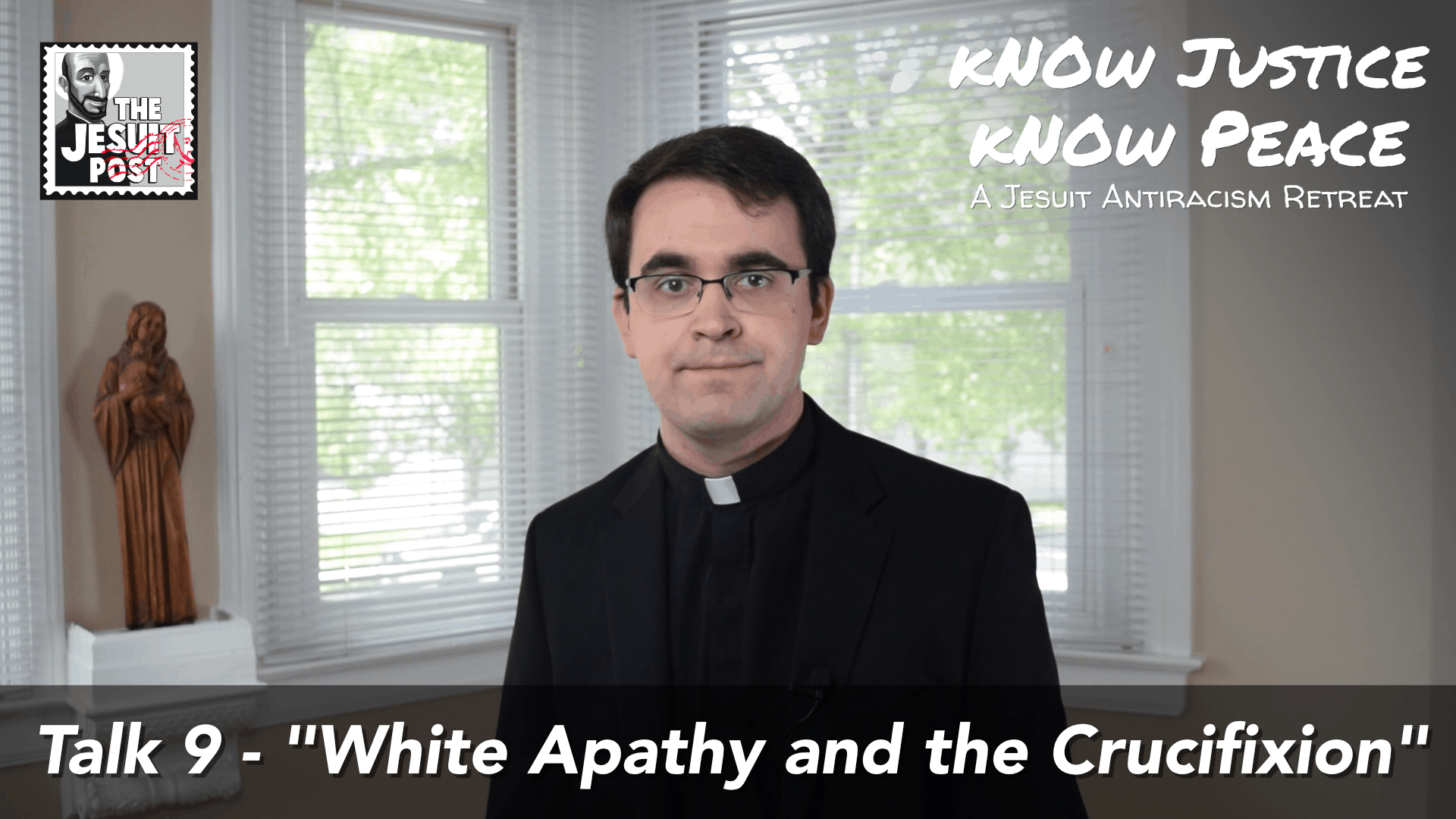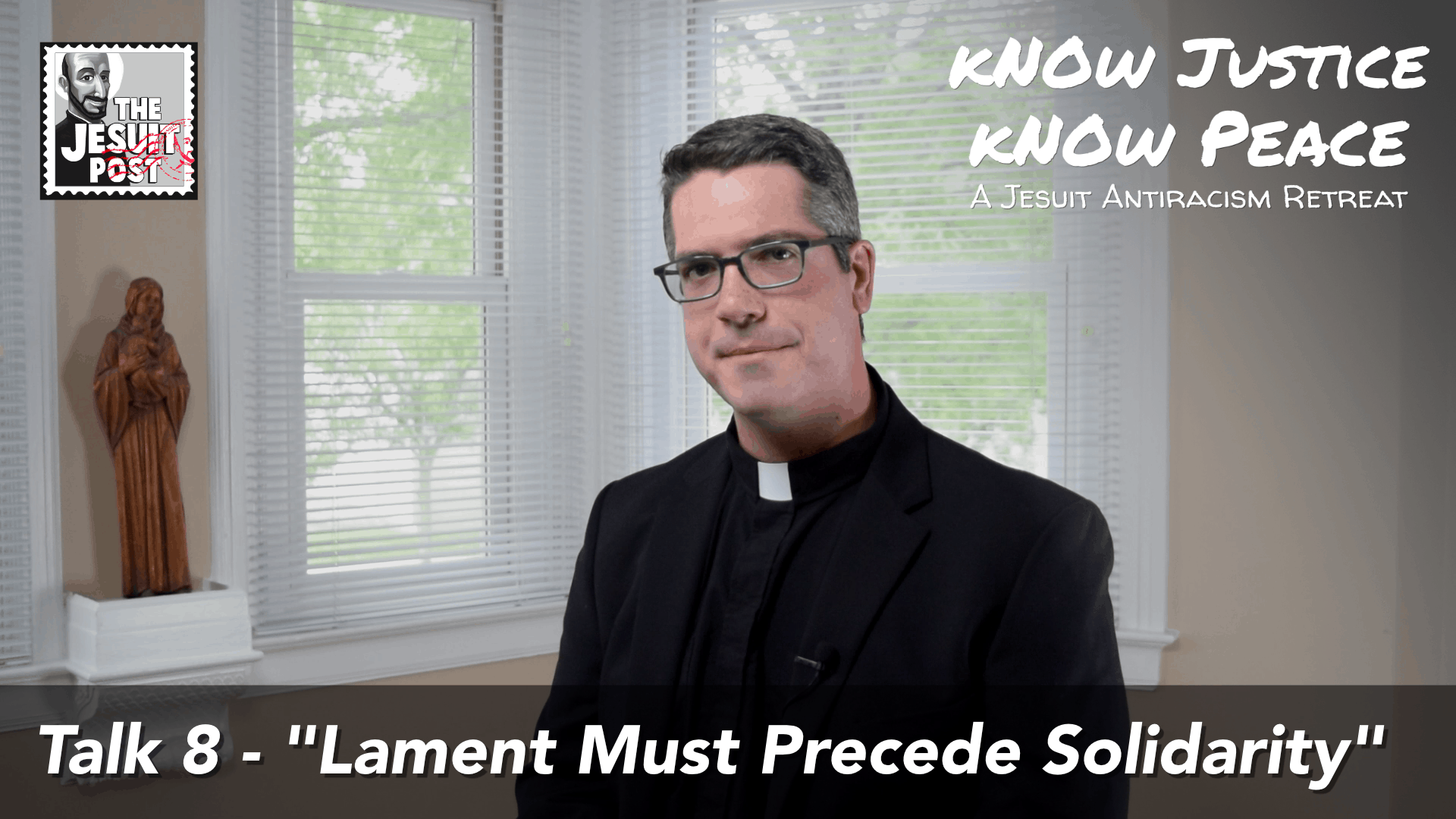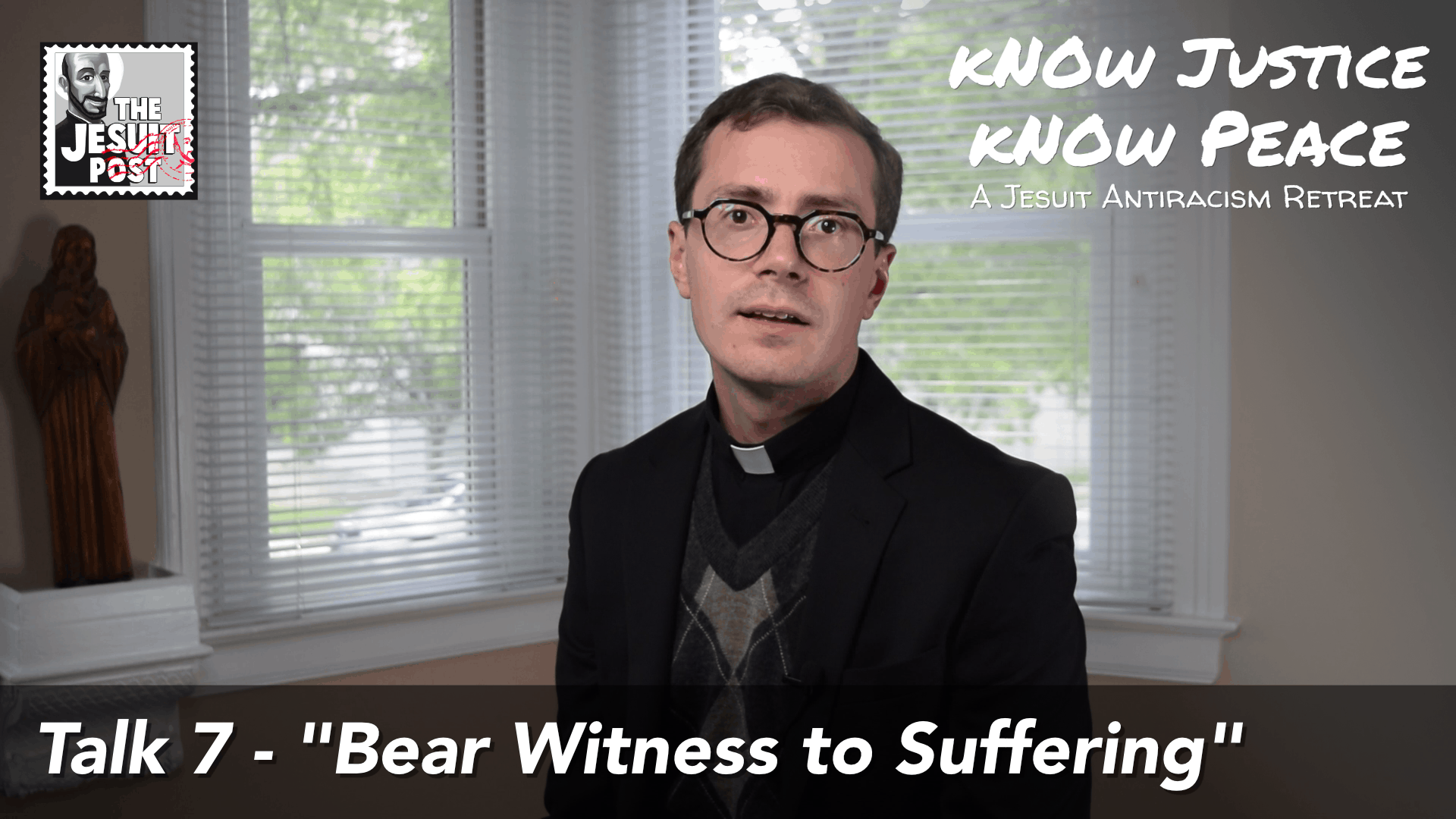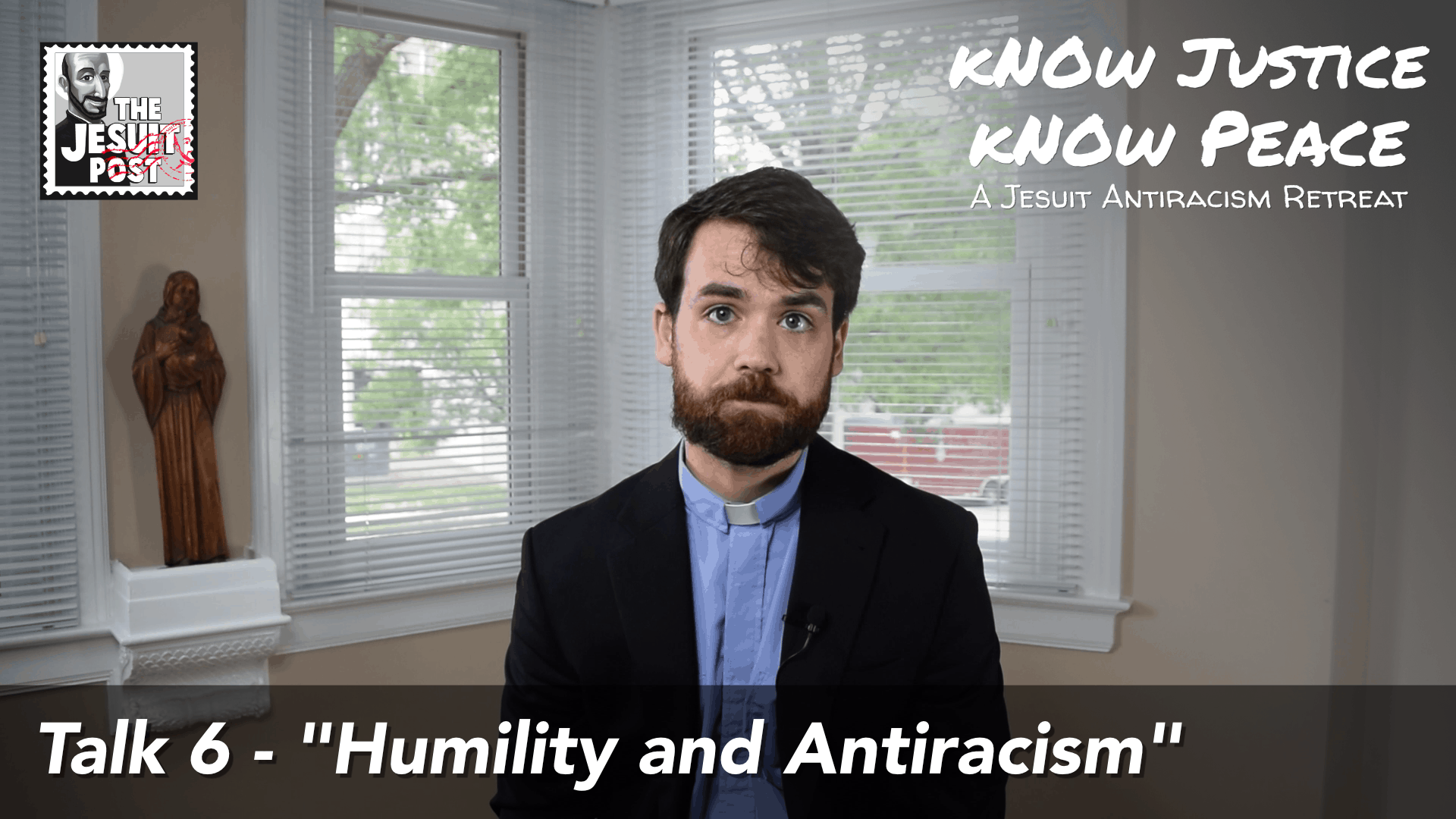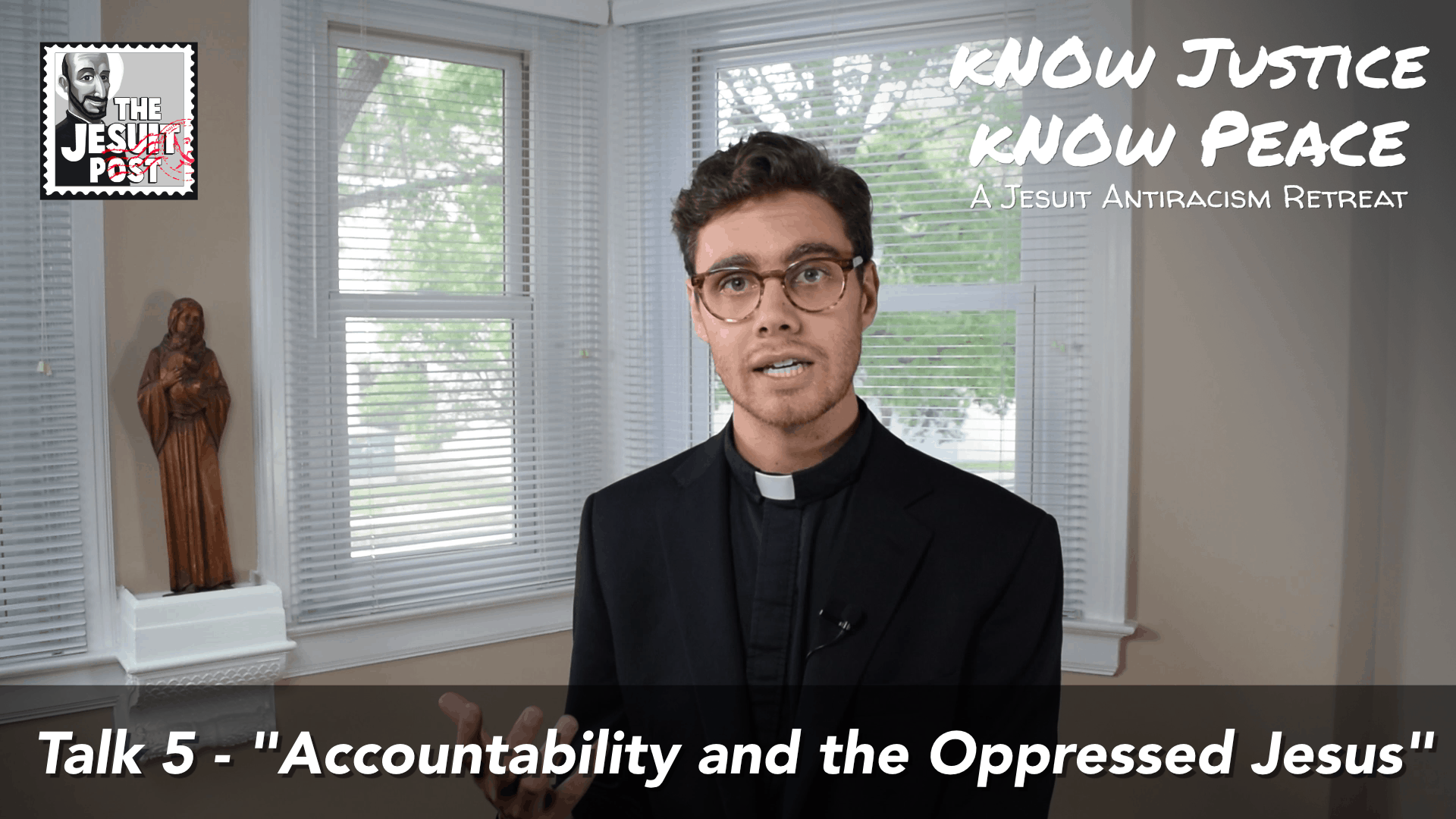Jesus was tempted out in the desert. Carlos Martinez-Vela, SJ, reflects that we must also face those dark corners of our hearts in order to invite Christ’s light in. God will show up.
Praying with the Pope: Caring for the Mental Health of Farm Workers
As the Church prays this November for those struggling with mental health, Daniel Mascarenhas, SJ draws attention to an often unseen group: slaughterhouse workers. In this reflection, he links compassion for animals with care for the human souls bearing the trauma of the meat industry.
Coming Soon: Season 9 of The Jesuit Border Podcast
Season 9 of The Jesuit Border Podcast is launching next week. The team has seen a lot of changes on the border and across the country since our last season ended in April. Listen to today’s teaser for a glimpse into the lives of Victoria and Lian who share their stories.
The Spiritual Foundation of a Lasting Ecological Conversion
How do the Spiritual Exercises speak to an ecological crisis? In this Season of Creation, Daniel Mascarenhas, SJ proposes an “Ecological First Principle and Foundation” to ground a lasting ecological conversion.
White Apathy and the Crucifixion | Know Justice, Know Peace: A Jesuit Antiracism Retreat
Grieving with others is not the only way we commit to solidarity. Becoming aware of one’s participation in the oppression of others, is another way of opening the eyes of the heart and deciding to be responsible. Brian Engelhart, SJ, describes the apathy White people often exercise when dealing with the realities of racism that affect Black, Indigenous, and People of Color (BIPOC), and finishes the third week of our “Know Justice, Know Peace: A Jesuit Antiracism Retreat” with one contemporary example, as well as with an invitation to get rid of indifference.
Lament Must Precede Solidarity | Know Justice, Know Peace: A Jesuit Antiracism Retreat
Some realities in life can only be known through tears. The participation of Black, Indigenous, and People of Color (BIPOC) members in antiracism is not a hobby or an optional venture: it’s a matter of survival.They do not have the luxury that White people have to retire from the conversation of racism and flee from its painful realities. Matt Briand, SJ, invites us to put aside our fear to weep with those who weep because of racism, for true Christian love suffers along the beloved, and commits to justice.
Sometimes I Wonder, What If the Bread Changes but We Don’t?
It happened when I served as a Eucharistic minister at a large suburban hospital over five years ago. When I walked into his room, he looked like anybody’s grandpa. I can still see him lying there: a 90-some-year-old man with smallish frame nestled into the middle of the recliner bed, a tuft of white hair atop a wrinkled but happy-go-lucky face, the flimsy-knit, standard issue hospital blanket pulled up just under his chin. Read as Christopher Alt, S.J. reflects on the Eucharist and our everyday life.
Bear Witness to Suffering | Know Justice, Know Peace: A Jesuit Antiracism Retreat
Feeling grief for the suffering of others is one of the first steps toward a commitment to serve them. It helps us to have a greater sense of urgency for justice, as well as a deeper understanding of what is at stake. When we accompany those who suffer from racism in their mourning, we walk with our neighbors and bear witness to our Christian vocation. River Simpson, SJ, introduces us to the third week of our “Know Justice, Know Peace: A Jesuit Antiracism Retreat,” and invites us to remain faithfully present to the agonizing Jesus, through our accompaniment of the victims of racism.
Humility and Anti-Racism | Know Justice, Know Peace: A Jesuit Antiracism Retreat
Humility plays a vital role in anti-racism work. Intellectual and moral humility allows individuals to admit complicity in a culture of racism and commit themselves to the ongoing struggle of anti-racism. By looking at the Call of Simon Peter, contemplating the story of Martha and Mary, and meditating on what it means to be “childlike,” Sullivan McCormick invites us to reflect on where in our lives we might need more humility as anti-racists.
Accountability and the Oppressed Jesus | Know Justice, Know Peace: A Jesuit Antiracism Retreat
When I speak about racism, am I generally more worried about how white people will feel, react, or think of me than I am about how people of color will? Does my Church, my workplace, my classroom consider mainly the sensitives, comfort and concerns of white people? Billy Critchley-Menor points the anti-racism conversation in the right direction when he explains that it is about white people being held accountable to People of Color. White supremacy has shaped society around the accountability of white people. Anti-racism refocuses our attention so we are held accountable by the oppressed in our society; those in whom Jesus lives according to the Gospels.

